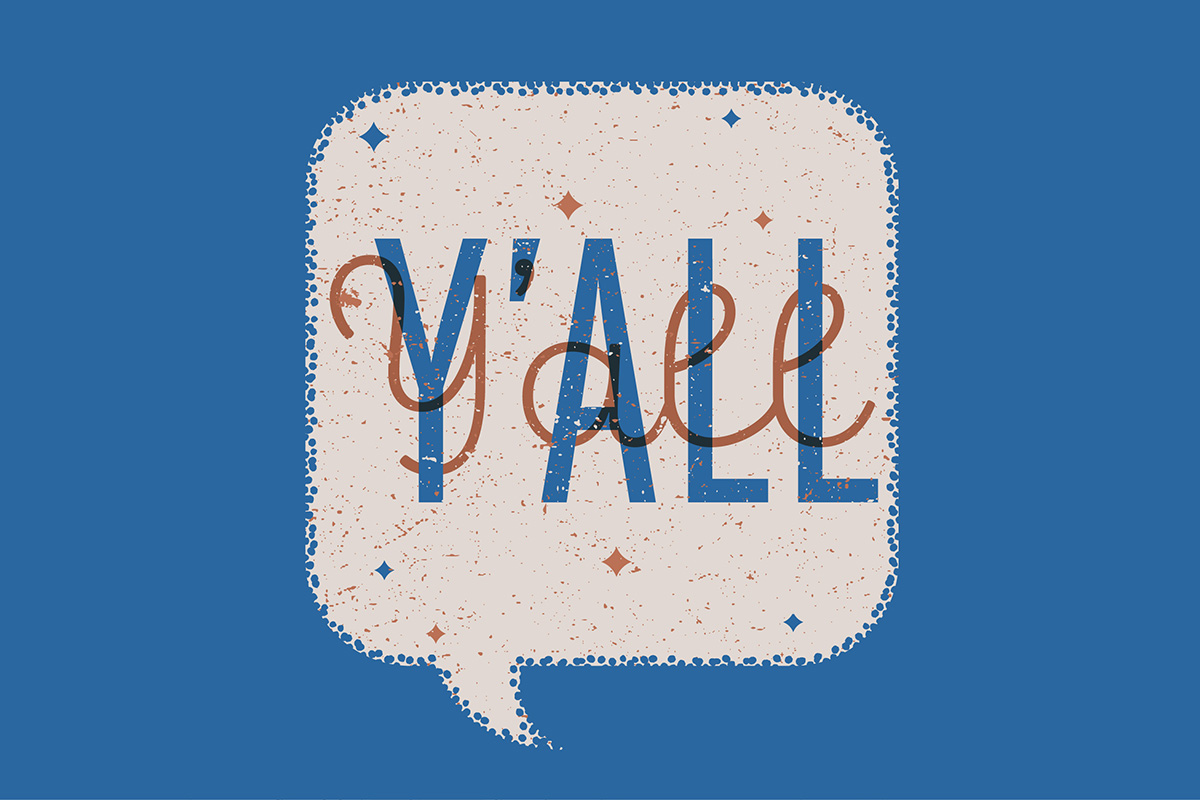
Younger people consider “y’all” more inclusive than the gendered alternative “you guys.” Danielle Lawry
As a lexicographer, Kelly Wright researches serious linguistic topics, such as how to get driverless cars to realize when a passenger is drunk and how to improve communications for patients using telehealth.
But the UW–Madison assistant professor of language sciences also attracts attention for more lighthearted subjects. She writes for a dictionary called Among the New Words, which has been keeping track of informal language for 84 years, and she helps run its word-of-the-year competition. (The 2024 winner: rawdog.) Wright, who was recently interviewed by National Public Radio about the term y’all, says that the phrase, which was traditionally associated with the U.S. South, is now becoming more common across the country.
She suspects that the usage is widespread now because younger people consider it more inclusive than the gendered alternative “you guys,” which was more common in the North.
“This word came from Irish immigrants,” Wright says. “It also arose in African American communities and as part of Appalachian traditions. It’s interesting that it can be all those things at once, which is what I love about it.”
Wright, who grew up in East Tennessee, says that when she hears someone say y’all, “it reminds me of home. I feel a kinship with this person. … How we feel about language really informs a lot of things — how we feel about people, and how we feel about ourselves.”
Published in the Winter 2025 issue



Comments
No comments posted yet.